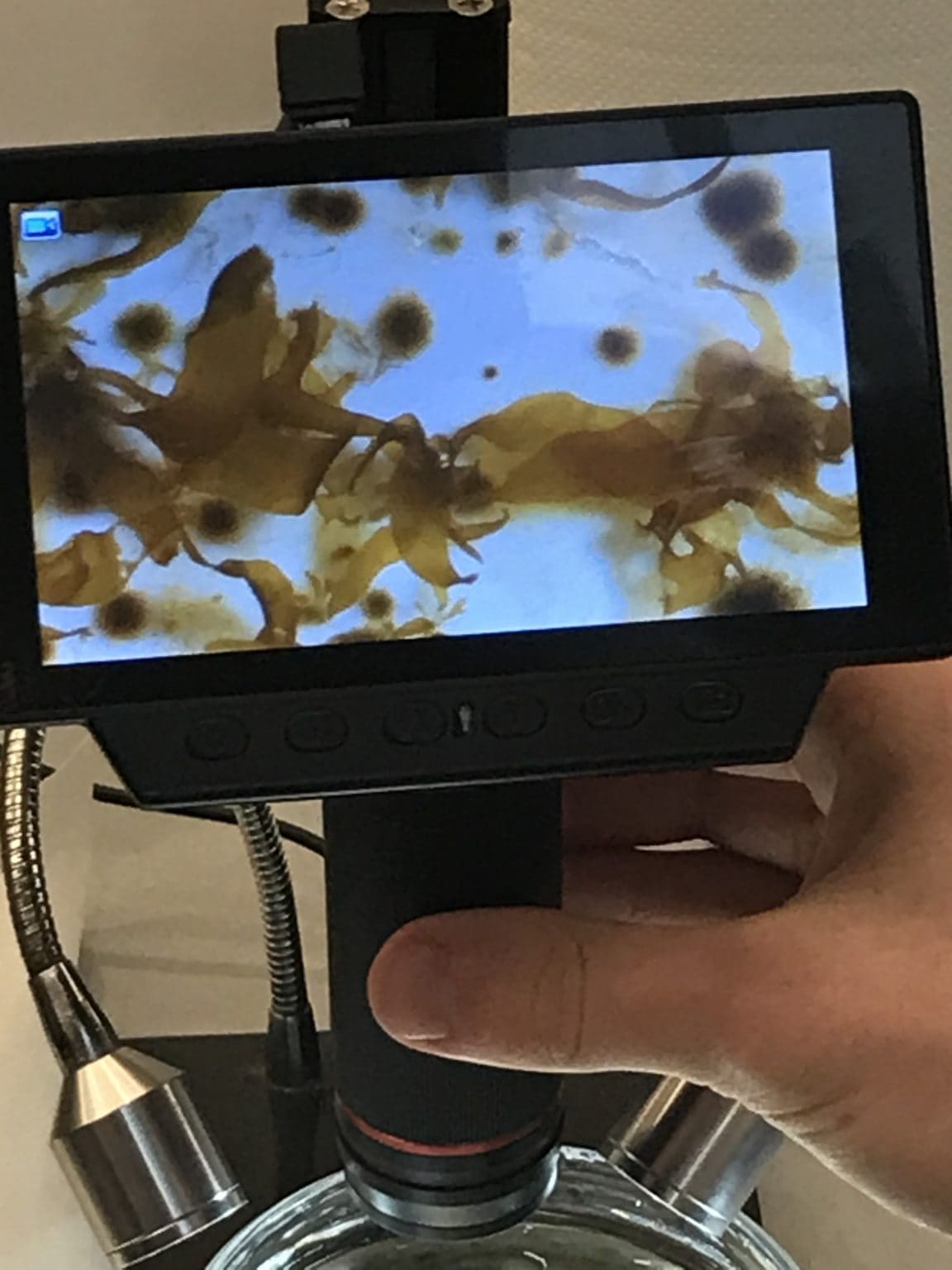During the three-day Rimurimu Science programme in Portobello, Dunedin, our group’s main focus was on studying the growth rate of bladder kelp, particularly during its Sporophyte stage, which represents the second phase of its life cycle. The primary objective of our research was to assess the potential impacts of climate change on bladder kelp Sporophyte. This was especially important given the ongoing global effects of climate change and its influence on regions like Otago Harbour, where significant bladder kelp populations reside.
Bladder kelp holds immense importance for humans due to its contributions to sustainable human aquaculture and seaweed ecology. This marine plant plays a critical role in producing substantial amounts of oxygen, providing shelter, and serving as a vital food source for both humans and various marine creatures.
During the program, we had the privilege of residing on Quarantine Island/Kamau Taurua, the largest island in Otago Harbour. This location offered a stunning and immersive environment for our research activities.
Through conducting this study, our aim was to contribute valuable insights to the scientific community, aiding in the understanding of how climate change affects bladder kelp Sporophyte and the broader marine ecosystem. By Apollyon Hall
Rimurimu is a residential programme offered through the University of Otago at the Marine Studies Centre. Apollyon attended July 19-21 and will present his findings in the second half of the programme August 17-18, 2023.







